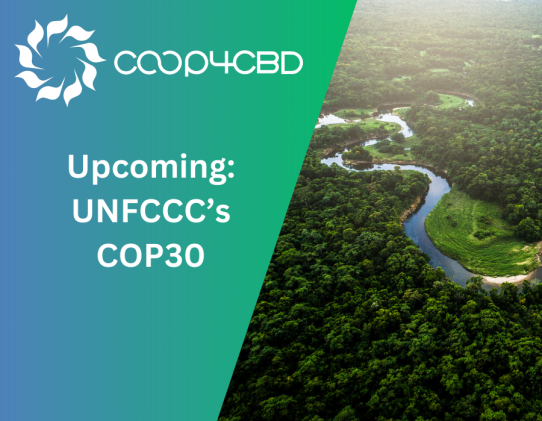
Credit: Pensoft Publishers
Upcoming: UNFCCC’s COP30
The Conference of Parties (COP) is the main decision-making body of the United Nations Framework Convention on Climate Change (UNFCCC). Annually (with some exceptions), representatives from the Parties gather to review the implementation of the Convention.
This year the 30th Conference of the Parties (COP30) will bring together policymakers, researchers and stakeholders for key negotiations in Belem, Brasil. Marking the tenth anniversary from the adoption of the Paris Agreement, this COP is going to focus on implementation. From 10-21 November, negotiators and stakeholders will participate in discussions on climate change, with focus on finance, emissions reductions, adaptation and building resilience.
Key topics which will be addressed at COP30 are:
-
Nationally Determined Contributions (NDCs): A central focus will be the review and enhancement of national climate action plans for 2035. Countries are expected to submit more ambitious, economy-wide NDCs aligned with the 1.5°C temperature goal of the Paris Agreement.
-
Climate Finance: Negotiations will aim to finalize the Baku-to-Belém Roadmap, a plan to mobilize at least USD 1.3 trillion annually by 2035 to support climate action in developing countries.
-
Global Goal on Adaptation (GGA): A significant expected outcome is the agreement on a concrete framework and set of indicators to measure global progress on adaptation efforts.
-
Loss and Damage Fund: Discussions will center on the operational delivery of the Fund for Responding to Loss and Damage.
-
Global Carbon Market Rules: Negotiators will work to finalise the technical rules for the UN-backed regulated global carbon market under Article 6.4 of the Paris Agreement.
-
Nature and Forests: Given the location in the Amazon, there will be a strong emphasis on nature-based solutions. A major initiative is the proposed launch of the "Tropical Forests Forever Facility" fund.
-
Just Transition: the foreseen "Belém Action Mechanism for Just Transition" will aim to provide a framework to ensure that the shift away from fossil fuels is fair and inclusive, focusing on workers' rights, social inclusion, and job creation in affected communities.
-
Transparency and Accountability: including discussions around the Enhanced Transparency Framework (ETF) for countries to report on their progress in a standardized manner.
Furthermore, before the start of the con several reports were produced, and their results and conclusions will be addressed during the Conference, including:
-
The Biennial Transparency Report (BTR) Synthesis Report, highlighting the need for wider and more rapid progress (by UN Climate Change)
-
The NDC Synthesis Report, showing the clear progress in reducing global emissions (by UN Climate Change)
-
The NAP Synthesis Report, concluding that the directions, foundations and frameworks for building climate resilience are available but there is a need for acceleration (by UN Climate Change)
-
The Adaptation Gap Report 2025, evaluating the cost of adaptation finance needed in developing countries (by UN Environment Programme).
Read more about COP30 here.